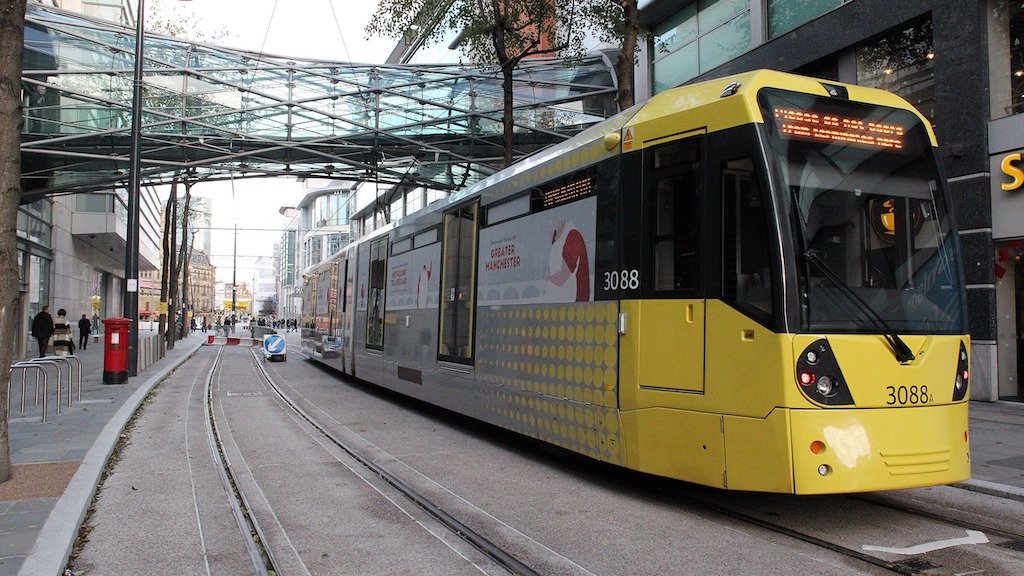Government confirms £7 billion local transport funding
The government has announced a raft of funding packages totalling nearly £7 billion to “overhaul and level up” major local transport schemes
Thirty-one counties, city regions and unitary authorities across England, say the Department for Transport (DfT), are set to receive funding which will go towards major upgrades to local tram, cycling, walking and rail networks while also introducing lower, simpler bus fares offering savings of up to 45%.
The majority of the money will go to Mayoral combined authorities through the £5.7 billion, five-year City Region Sustainable Transport Settlements (CRSTS). First announced in the autumn statement, CRSTS give the elected mayors of England’s eight largest city regions, “long-term certainty to plan and deliver transformational improvements to their local transport systems.”
Headline figures of settlements confirmed are:
Greater Manchester Combined Authority £1070M
West Midlands Combined Authority £1050M
West Yorkshire Combined Authority £840M
Liverpool City Region Combined Authority £710M
South Yorkshire Mayoral Combined Authority £570M
West of England Combined Authority £540M
Tees Valley Combined Authority £310M
The eighth area, the North East, DfT says, “will be eligible to work with government to agree a funding settlement once appropriate governance arrangements are in place.”
The money will help deliver, among other things, a new mass transit network in West Yorkshire, improvements to rail services in the Tees Valley, a flat fare on buses in Greater Manchester and bus rapid transit corridors in the West Midlands. Letters have been sent to the metro mayors outlining the funding.
A further £150 million is being provided across England to help deliver on the Bus Service Improvement Plans (BSIP) in the following areas:
Portsmouth
Stoke-on-Trent
Greater Manchester
West Yorkshire
West Midlands
Liverpool City Region
North East and North of Tyne Combined Authorities
Reading
Norfolk
Luton
York
Warrington
According to DfT, just under two-thirds of England’s population outside London will benefit from the new investment “to make their buses more frequent, more reliable, easier to understand and use, cheaper, or greener. Improvements will also include integrated ticketing and more bus lanes to speed up journeys.”
The successful areas, says DfT, have been chosen because of their ambition. “As the government stated in last year’s national bus strategy, areas not showing sufficient ambition, including for improvements to bus priority, would not be funded.”
Improvements in the pilot area, Cornwall, will start next week. Funded by £23.5 million from the government, most bus fares in the county will be slashed. Passes for unlimited bus travel across Cornwall will cost £5 per day or £20 per week. Town zone passes will be £2.50 per day or £10 for a week. All tickets will be available on all operators’ services and in the summer contactless tap-on and tap-off payments will be introduced and buses will connect easily with the main rail line at stations across the county.
In making the announcement Transport Secretary Grant Shapps said, “Buses are the most popular way of getting around in this country – but for too long people outside of London have had a raw deal. The investment we’re making today to ramp up the bus revolution will drive down fares and help connect communities across England.”
Responding to the funding announcements Chair of the Urban Transport Group, Laura Shoaf, said, “Although we have yet to see the full details confirmation of substantial investment in Bus Service Improvement Plans, and in City Region Sustainable Transport Settlements, is welcome and will result in significant improvements in public transport and active travel provision for some of the people and places we serve.
“We now need to see this package of largely capital spending complemented by a long-term plan for revenue support for bus networks which can meet the national bus strategy’s aspirations for better services everywhere.”

